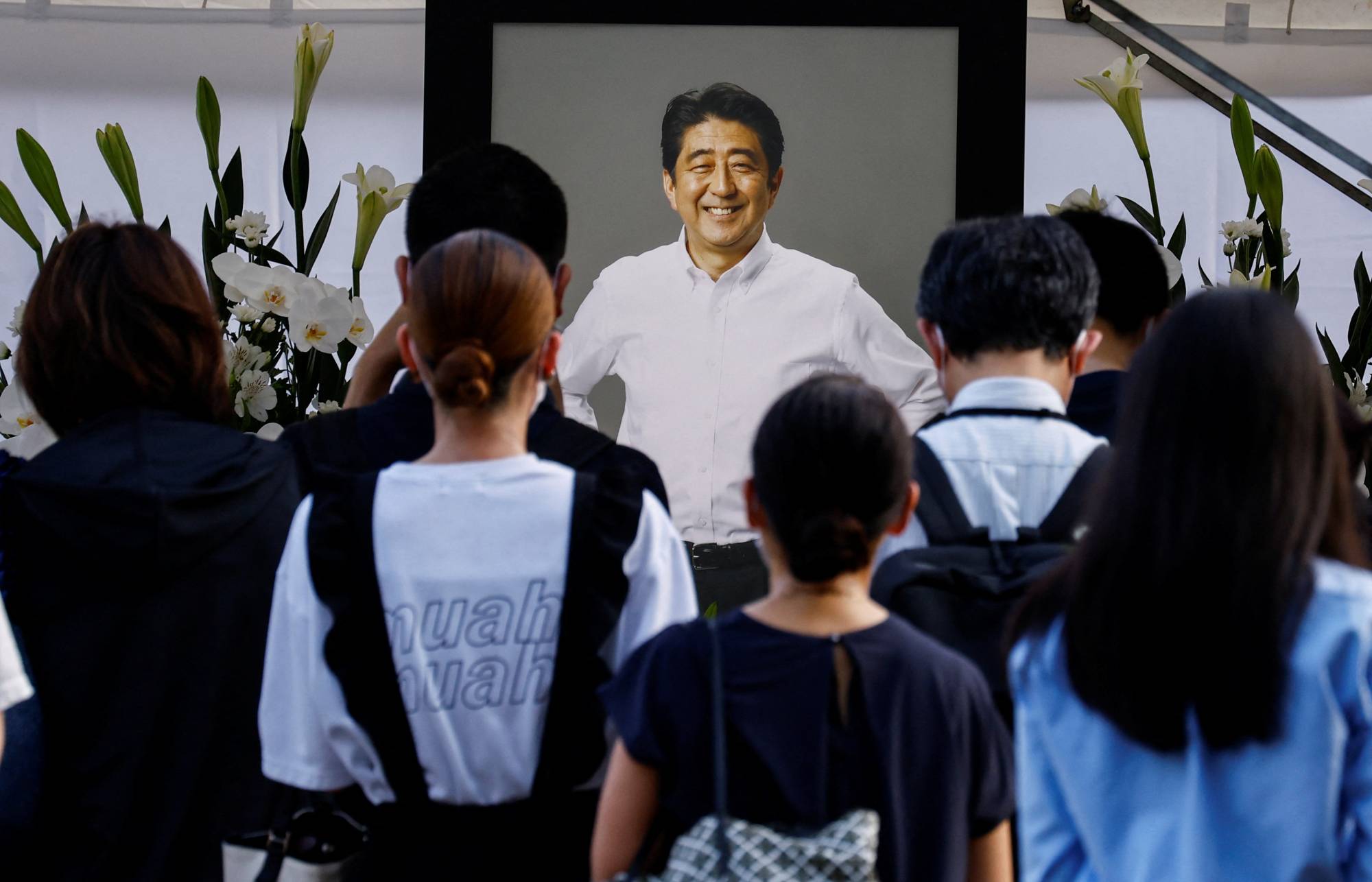In a country where voters are increasingly opposed to a state funeral for Shinzo Abe, support for the event remains high among younger Japanese who see themselves as having benefited from his economic policies during his record run as prime minister.
For many voters in their 20s, Abe’s name is synonymous with a soaring Nikkei stock average and almost full employment under his Abenomics program — a mix of radical monetary easing, fiscal spending and vows of structural reforms. For older people, revelations about his links with a religious sect whose founder was convicted in the U.S. of tax fraud rekindled memories of suspected graft and favoritism scandals that clouded his government.
"I want to take pride in the fact that Abenomics became known around the world,” said Koharu Yano, a 20-year-old student at a university in Tokyo. "Even if there were some flaws, it’s important to emphasize the positive aspects.”


















With your current subscription plan you can comment on stories. However, before writing your first comment, please create a display name in the Profile section of your subscriber account page.